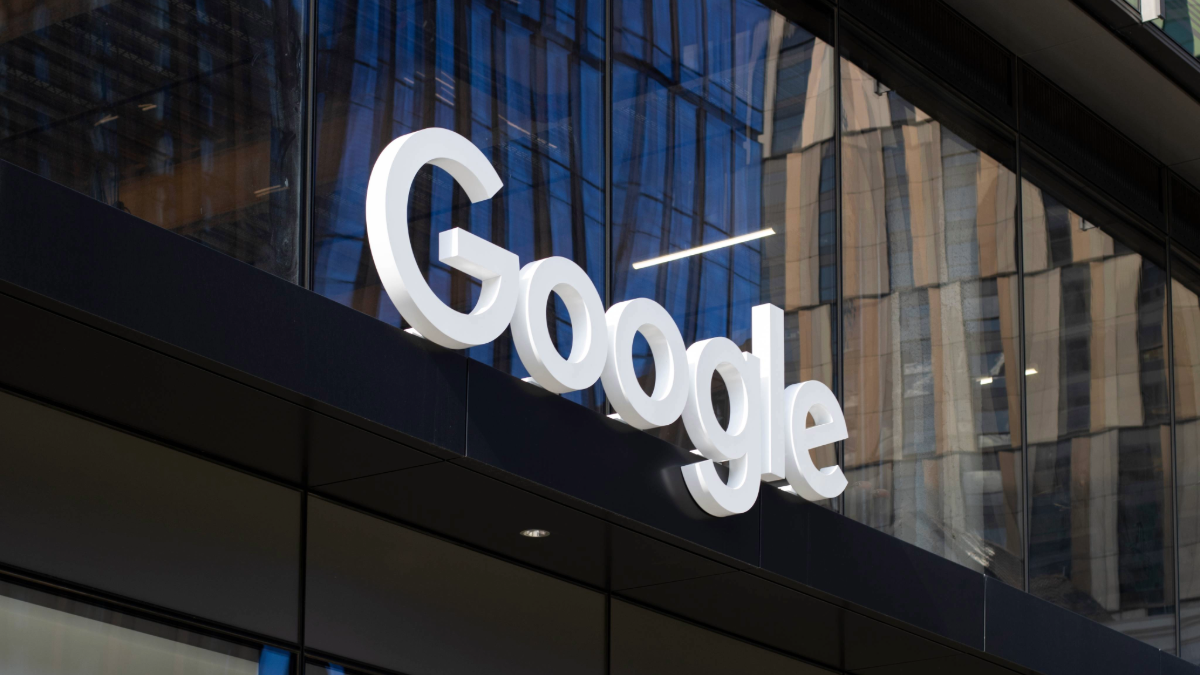Google Search Investigation is a First Test for New UK Competition Law
Megan Kirkwood / Jan 20, 2025Megan Kirkwood is a 2025 Tech Policy Press fellow.
As the new year began, so too did the UK’s new competition law. Titled the Digital Markets, Competition, and Consumers Act (DMCCA), the new law came into force on January 1, 2025, after receiving royal assent last year. The law is the latest addition to a list of new ex-ante rules being rolled out across the globe, which are intended to reign in the power of Big Tech.
In an explainer article, I wrote that the DMCCA has often been compared to the Digital Markets Act (DMA), Europe’s ex-ante regulation focused on promoting contestability and fairness in the digital sector. This is due to the UK pursuing regulations on digital markets that apply only to the largest firms and are intended to complement existing competition law. I also pointed out that the procedures of the DMA and DMCCA operate quite differently. Whereas the DMA has a preset list of rules that designated firms have to follow, the DMCCA will investigate suspected firms of Strategic Market Status (SMS) in relation to a digital activity or activities, and alongside those investigations, will create tailored conduct requirements and/or pro-competition interventions.
Now that the law is in force, the UK Competition and Markets Authority (CMA) announced that it would launch SMS designation investigations in relation to two areas of digital activity in January, and a third digital activity investigation launched within six months of 2025. The tailored conduct requirements will be unveiled at the same time as the designation is concluded.
A week later, the CMA revealed that the first SMS investigation would look at Google’s general search and search advertising services, which is being treated as one digital activity. The CMA can treat multiple “digital activities” as a single activity if they are considered to have the same purpose or can be deployed together to fulfill a purpose. In the CMA’s Investigation Notice, the authority specified that the main Google products likely to be included in this investigation are:
Google’s search engine (Google Search), however it is accessed, including (a) the underlying web crawling, indexing and ranking infrastructure, and (b) all information incorporated in its search engine results page (SERP); Google’s search advertising products (including Google Ads and SA360); and Google’s AI interfaces (for example, its Gemini AI assistant) when using the Google.”
What does this mean?
The CMA will need to prove that Google has substantial and entrenched market power and a position of strategic significance in general search. Assuming that Google Search meets the specified thresholds, such as the turnover condition, and that a “significant number” of UK users use Google Search, the CMA will need to do a forward-looking assessment of five years. The “starting point” of that assessment will be the market conditions and market power at the time of the SMS investigation, for example, the almost complete monopoly Google has over search and search advertising. From there, the CMA will look at the potential dynamics of competition over the next five years, taking into account any expected or foreseeable developments that may affect the firm's conduct in search if the firm were not designated. This essentially asks whether Google is likely to maintain its dominance in the market to the detriment of potential competitors.
Alongside this forward-looking assessment, the CMA has to prove at least one of the following conditions: that Google Search has achieved a position of significant size or scale; a significant number of other firms use Google Search or search advertising; Google’s position in search can extend its market power to a range of other activities; or Google’s position in search allows it to substantially influence the ways that other firms conduct themselves (an example here would be Search Engine Optimization). As long as the CMA can find one of these conditions to be present, that will be sufficient, and it does not need to prove the presence of any other conditions. Considering the over 90% market share that Google maintains in search, it is possible the CMA only has to prove the first condition.
To specifically assess the “market power” of the SMS firm, the CMA will need to prove that Google does not face strong competitive constraints in search. The agency says “there is no exhaustive list of factors” but gives potential examples such as lack of competitive restraints from rivals; advantages like economies of scale, network effects, data advantages, or integration into a wider ecosystem of digital products; the presence of significant barriers to entry or expansion, importantly “either as a result of structural market features or because of exclusionary conduct by the potential SMS firm”; lack of alternatives or significant switching costs to end users; or if the firm has excessive profits.
Once these conditions and assessments are met, the CMA can designate a firm as having SMS in relation to that digital activity and then impose conduct requirements, or if the CMA finds that the firm is having an “adverse effect on competition,” it can impose pro-competition interventions. However, pro-competition interventions can only be created after completing the SMS designation investigation and require a separate investigation, whereas conduct requirements can be formulated alongside SMS designation, so they are a much faster tool.
Potential Remedies
In the press release, the CMA indicated it would focus on several key areas in its investigation of Google. The CMA suspects “weak competition and barriers to entry and innovation in search” and will thus assess “whether Google is able to shape the development of new AI services and interfaces, including ‘answer engines’, in ways which limit the competitive constraint they impose on Google Search.” Additionally, the CMA suspects Google is able to unfairly self-preference its own search services, naming shopping and travel, due to its market power, and will investigate “potential exploitative conduct” in data collection, such as “the collection and use of large quantities of consumer data without informed consent, and the use of publisher content without fair terms and conditions (including payment terms).”
Prior competition cases illustrate the self-preferencing of Google Shopping in search, but the other focus areas by the CMA, such as considering in tandem Google’s ability to shape new AI services and the potential exploitative conduct in data collection, are more novel. The CMA could consider the vast advantages Google maintains over AI search markets, including its ownership and control of upstream resources like data and compute and its ability to gatekeep those resources, as suggested by the Open Markets Institute and Mozilla Corporation.
In looking at consumer data exploitation, the CMA could work with the data privacy regulator, the Information Commissioner’s Office, to consider Google's compliance with the UK’s data protection law. Investigating the company’s unfair collection of publisher content, the CMA may also examine Google’s web crawler. As Jason Koebler reported for 404 Media, publishers have struggled to block AI crawlers as AI companies release new crawlers, leaving publishers scrambling to update their robot.txt (a protocol used to control which web crawlers are able to index web pages). Studies dating from as far back as 2010 have found commercial crawlers, like Google’s, “constantly disobey” robot.txt rules.
Earlier this year, Julia Love and Davey Alba revealed in Bloomberg that Google uses its search index crawler, Googlebot, to both index websites for search and draw in content for its AI Overviews. This forces publishers to surrender their content to Google and receive no remuneration in order to appear in Google’s Search results. Addressing such an imbalance of power through a conduct requirement could enable publishers to have the choice to opt out of inclusion in AI search interfaces in the future.
Any potential conduct remedy, according to the final guidance, must align with one of three objectives, either fair dealing, open choices, or trust and transparency, and must adhere to a permitted type of conduct requirement. A potential remedy in the Google investigation was outlined in the CMA press release, likely referring to the requirement preventing SMS firms from “using data unfairly.” The press release stated the potential “requirements on Google to make the data it collects available to other businesses or giving publishers more control over how their data is used, including in Google’s AI services.”
This suggests extending requirements to share anonymized click and query data such as DMA Article 6(11), and as suggested by the US Department of Justice, proposed final judgments in the case against Google search, including that Google license its search data to competitors. The other potential remedy could mean a move away from a reliance on robots.txt, which, as illustrated, does not work in practice and proposes a more robust means for publishers to opt in or out of AI-related crawling.
The press release acknowledges that their choice to target Google Search first is not happening in a vacuum and that their “announcement comes at a time when other authorities around the world, including in the US, Europe, and Australia, are also taking a close look at Google’s search activities. The CMA is in regular contact with these other authorities.” The DMCCA final guidance states that it can update, change, or revoke conduct requirements, and when considering using pro-competition interventions by investigating the presence of adverse effects on competition, other regulatory obligations can be taken into account. Presumably, this can mean consideration of Google’s non-compliance with EU competition decisions, lessons from enforcement challenges related to the DMA, or assessing the outcome of the United States v. Google LLC case.
Closing Thoughts
Google wasted no time in drafting a public response to the investigation. It stated that the company intends to engage “constructively” but will ensure to argue “the trade-offs inherent in any new regulations.” Indeed, the company referred to its arguments against the DMA, which stated that the regime stifles “choice and opportunity for consumers and businesses.” Thus, it is likely that Google will recycle the same arguments in the UK.
An important piece of the DMCCA puzzle is the procedure of the law. Unlike the DMA, which lists rules for gatekeepers to follow and has led to back-and-forth tussles about whether or not certain gatekeepers are complying with either “the spirit and letter of the law,” the DMCCA is intended to be a participative regime. The final guidance illustrates how SMS investigations and conduct requirement formulation will be done in dialogue with suspected SMS firms, with plenty of third-party consultations throughout the process. This is intended to avoid both “malicious compliance” and outright non-compliance.
The DMCCA has the potential to inflict meaningful changes on dominant firms. However, like the DMA, these rules will face significant headwinds in the coming years. With the incoming Trump administration, the ability of competition authorities to enforce their rules against Big Tech may be challenged. CEOs like Apple’s Tim Cook and Meta’s Mark Zuckerberg have made their complaints heard to Trump regarding the EU’s rules, and the threat of US imposed tariffs or security threats may (or may not) be spooking the Commission from enforcing the DMA. Time will tell whether authorities can hold their nerve. With the threat of Trump behind them, how UK authorities will force SMS firms not only to comply but also participate in their regulation under the DMCCA will be something to watch in 2025. For now, the CMA must complete this first investigation within nine months to reach a decision by October 2025.
UPDATE: On January 21, Jim Pickard and Suzi Ring reported for the Financial Times that the CMA chair, Marcus Bokkerink, is being replaced by former country manager of Amazon UK, Doug Gurr, as the new interim chair. The change follows complaints by some in the Labour government over the CMA’s “excessively interventionist approach to [merger] deals.” It seems to reflect a prioritization of a pro-growth, pro-business strategy by the government, particularly in tech, and may lead to less aggressive enforcement of DMCCA.
Authors

